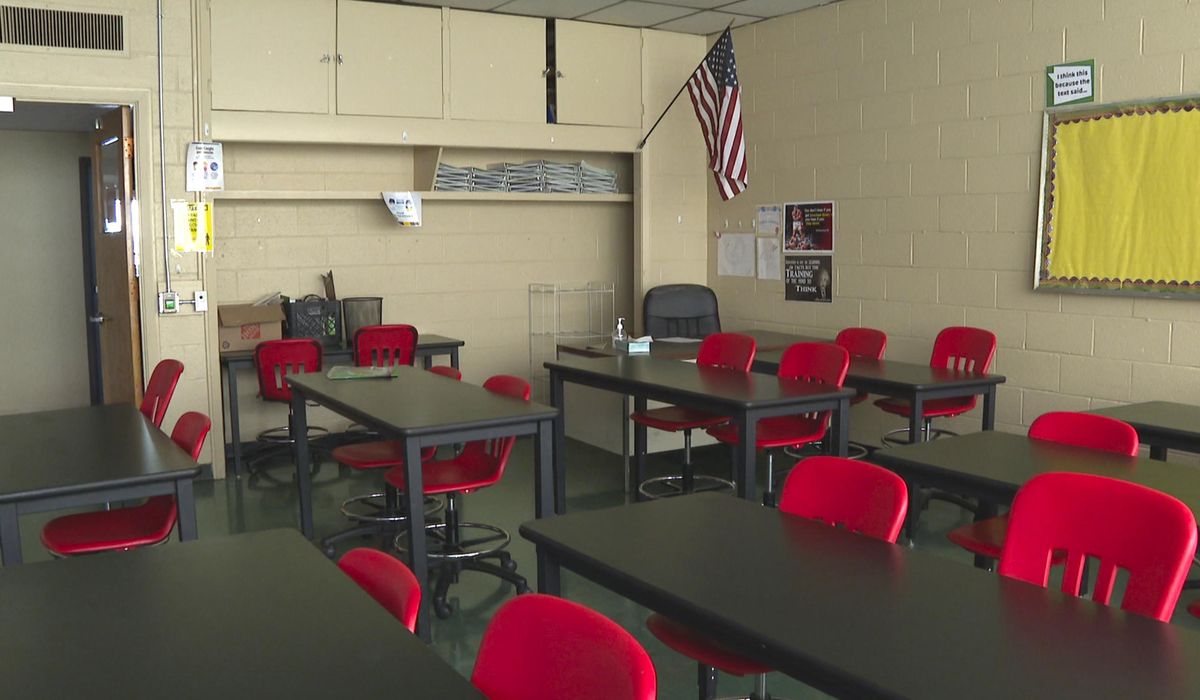
An unlikely mix of conservatives, liberals, homeschoolers and teachers unions are citing pandemic-era virtual education as a reason to end K-12 standardized testing.
Schools have long administered SATs, ACTs, Advanced Placement exams and state assessments tied to federal funding as objective measures that help determine students’ aptitude and college prospects — and states like Colorado plan to resume them.
But the last two years of online instruction have interrupted the months of classroom time needed to teach and administer the tests. Some state education officials have implemented alternatives for standardized tests, while those in Illinois and Florida have mulled altering or abandoning their assessments.
“We’re seeing improvisation at a scale possibly never before seen,” said Susan D. Blum, a University of Notre Dame anthropology professor who writes and speaks against traditional grading.
States deciding whether to resume exams this spring must resolve the “tension between those who are desperate to return to past practices and those who want to use this crisis moment as a way to question and transform virtually every dimension of our educational systems,” Ms. Blum said.
Faculty weariness and teacher shortages make it harder to resume standardized testing even with students in the classroom, she added.
Andrea Haitz, president of Mesa County’s District 51 school board in Colorado, was elected in November after running for office as a concerned parent. She said many parents and teachers are “fed up” with the system and ready for new ideas.
“I think we can find better measures that won’t put as much strain on our teachers and will better support our students,” Ms. Haitz said. “I like having data to help kids, but with so much learning lost during the pandemic, I just don’t know where these tests are going.”
Mesa County’s schools have started administering WorkKeys, an online workforce skills assessment that Ms. Haitz said draws “more on life experience than on regurgitated information” — a “practical learning approach” that her 17-year-old son, a high school senior who normally struggles with testing anxiety, prefers to the SAT or the ACT.
But Jennifer Marsh, executive director of curriculum and learning design for Mesa County, said the district has maintained in-person instruction this year and expects to resume standardized testing this spring.
“We participate in standardized tests as obligated and directed,” Ms. Marsh said, adding that the county had about 85% participation in the state’s standardized exam last year compared to less than 70% in the rest of Colorado.
And Curry Newton, director of assessment for the district, said state and national assessments offer “a valuable tool in helping students grow.”
“For us, it’s a piece of the pie in looking at a student’s overall growth,” Ms. Newton said.
On Dec. 14, the State Board of Education voted to resume administering the Colorado Measures of Academic Success to students after canceling the tests in 2020 and granting a one-year waiver for some grade levels in 2021.
Board member Steve Durham, a former Republican state representative, said he believes testing will “go back to normal” this year despite critics not wanting to “let a crisis go to waste.”
“As a result of the pandemic, testing opponents may be receiving support from unlikely places, but I don’t think it will be permanent,” Mr. Durham said. “Standardized tests are more important than ever before because you can’t focus your efforts and improve if you don’t know where your students are.”
Foes of standardized testing have objected that some children are stronger test-takers than others, and many colleges have de-emphasized the influence of scores on applications.
Until the pandemic, however, most schools had not made any changes to the system due to the billions of dollars in federal education funding tied to it.
Tracy Weeks, executive director of Instructure, which makes the Canvas software that thousands of districts use for hybrid and virtual learning during the pandemic, said many schools have started giving “shorter, standards-based assessments throughout the academic year to gauge student mastery rather than the usual one-time, end-of-year testing model used by most schools.”
“There is a new approach in thinking about assessment testing as a starting place to better understand the needs of students and be used throughout the learning process to continuously gauge students’ understanding,” Ms. Weeks said.
‘Biased system’
School districts throughout the nation reduced or suspended end-of-year assessments in spring 2020 and 2021, as students learning from home fell behind and teachers could not test online in a way that prevented cheating.
Under Republican Gov. Larry Hogan, Maryland scaled back its standardized assessment in 2021, giving only a handful of short math and English exams that could not be compared to previous years.
In the South, where homeschooling flourishes under looser government regulations, more families have started teaching their children at home. Jeremy Newman, director of public policy for the Texas Home School Coalition, said COVID-19 has led these parents to “build individualized solutions.”
“Those solutions must allow families to modify the educational program to match the needs of the family and the student,” Mr. Newman said. “I think that it’s wise for education leaders to look at test scores to help evaluate those problems, but the goal can’t be to get test scores up.”
Among the conservative critics of testing, Florida Gov. Ron DeSantis has announced a bill in the 2022 legislative session to eliminate the Florida Standards Assessment that students in grades three to 10 take annually to check their math and English skills.
“We are going to be ending that, and we are going to be replacing it with progress monitoring, which many school districts are doing anyway,” Mr. DeSantis, a Republican, said in September.
Mr. DeSantis said the new model would consist of “short, individualized check-in assessments three times per year” that will take hours rather than days to complete. If it becomes law, Florida will be the first state to abandon its standardized test.
Meanwhile, some Democrats and progressives have long complained that education officials use standardized tests to evaluate teachers and schools more than students, based on racially-biased scores that have dropped for years in communities of color and have fallen faster during virtual learning.
In Illinois, where the Chicago Teachers Union went on strike this month to prevent schools from reopening in-person, Democrat legislators have convinced the Illinois State Board of Education to consider changing the Illinois Assessment of Readiness Test that measures English and math skills.
Chicago Chalk Beat reported on Dec. 2 that in some Chicago high schools, none of the students met their state reading or math requirements in spring 2021 after a year of at-home learning. And fewer than 1 in 5 third-graders met or exceeded those requirements last year, down from a 40% reading proficiency and 33% math proficiency in 2019.
But State Superintendent of Education Carmen Ayala said in December that Illinois can’t abandon the test entirely because it is “federally required” and “failing to give an assessment would put us in jeopardy of losing out on over $1 billion of federal funding.”
President Barack Obama, a former community organizer in Chicago, appeared to flip-flip on standardized testing during his last year in the White House, backing away from the Common Core to warn schools about “too much testing” after unhappy families and teachers unions complained about multiple-choice test scores deciding their futures.
NEA Today, a publication of the National Education Association, the nation’s largest teachers’ union, published an op-ed in March that called standardized testing a “biased system” with “racist beginnings.” In the article, teachers John Rosales and Tim Walker cite a “clear correlation” between test scores and property values.
But Alleigh Marré, president of the Free to Learn Coalition school choice advocacy group, said canceling testing could hide the greater harm that lockdowns have done to students.
“Many of the impacts of prolonged absence from the classroom have already begun to surface and it’s likely the results of standardized tests will uncover further declines in academic achievement for years to come,” Ms. Marré said.
For more information, visit The Washington Times COVID-19 resource page.








